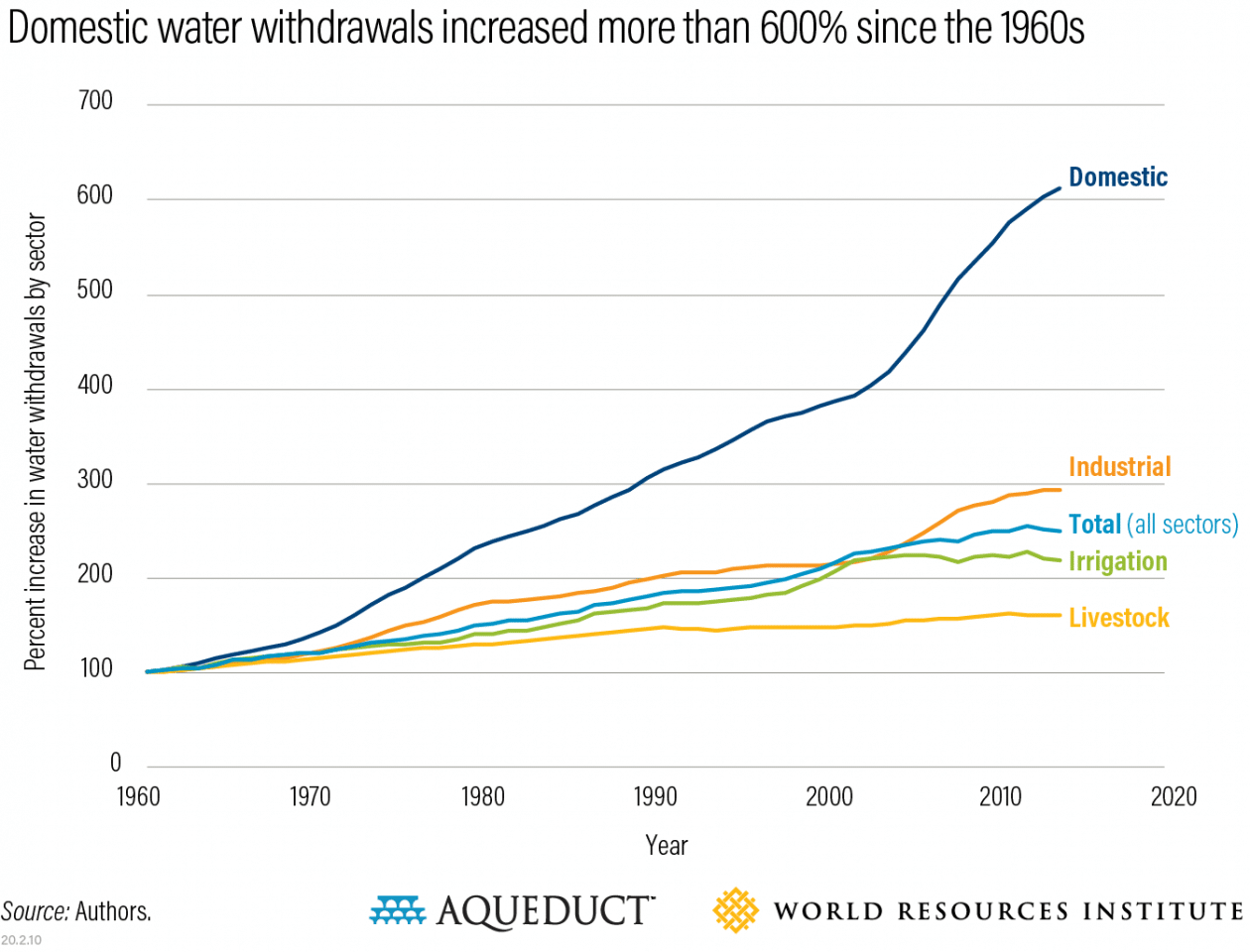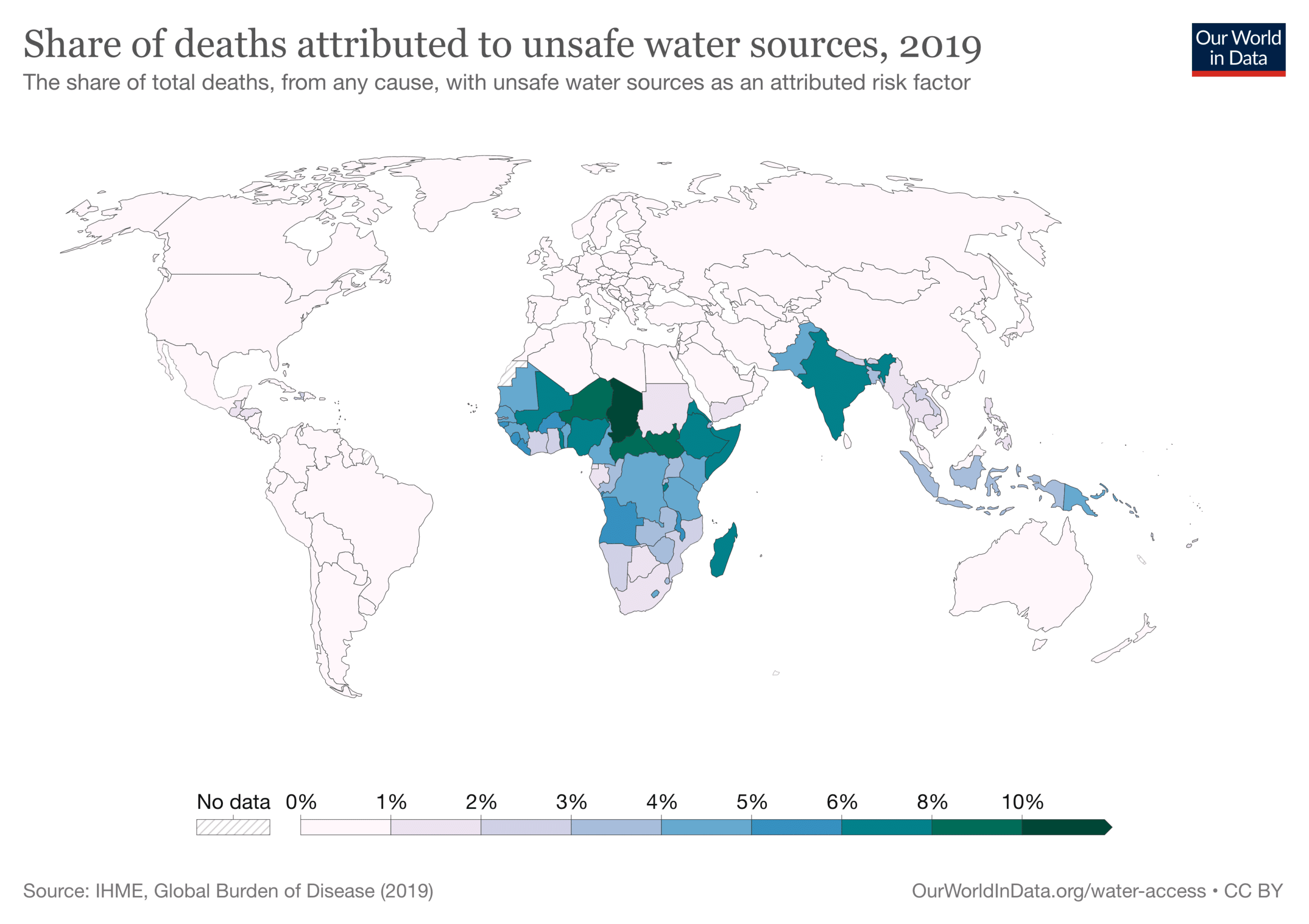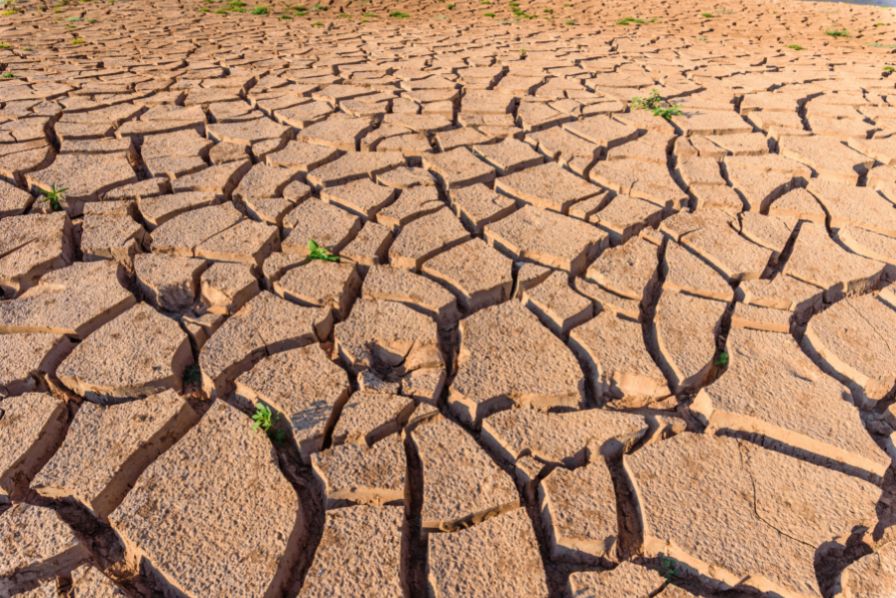The landmark report, published ahead of this week’s UN water summit, outlines seven key recommendations, urging governments to stop wasteful practices to avoid a global freshwater supply crisis.
—
Demand for freshwater will outstrip supply by about 40% which could lead to a global water crisis if no imminent action is taken, a landmark report on the economics of water has found.
Published ahead of the UN Water Conference, which is set to begin Wednesday in New York, the report outlines a seven-point call to collective action to achieve a sustainable and just water future and urges governments to take actions that are “bolder, more integrated, across sectors and more networked at national, regional and global levels.”
Climate change, population growth, and even more so decades of mismanagement have exacerbated global freshwater supplies and resulted in a local and global systemic crisis.
Contamination of water sources is the largest contributor to water insecurity worldwide, as water laden with sewage and waste from agriculture and industry flows through most rivers and streams without treatment, allowing pesticides and toxic chemicals to leach into the groundwater and freshwater systems, critically lowering the availability of water resources. Moreover, population growth and the rise in modern household technologies around the world have resulted in a 600%-increase in domestic water withdrawals since the 1960s.

Domestic water withdrawals have experienced a 600%-increase from 1960-2014, at a significantly faster rate than any other sector. Image by World Resources Institute.
The systemic crisis we confront has way more profound repercussions than previously thought.
According to the World Health Organization (WHO), over 2 billion people – about one-fourth of the world population – live in water-stressed countries and have access only to contaminated drinking water sources, which pose huge health risks and can result in diseases such as cholera, dysentery, typhoid, polio, and diarrhoea. The latter alone is estimated to cause 485,000 deaths each year, while unsafe water is linked to about 1.2 million deaths, the majority of which occur in low-income countries.

In low-income countries, unsafe water sources account for 6% of deaths. Image: Our World in Data.
According to the report, water shortages interact with and simultaneously exacerbate global warming and biodiversity loss, they imperil all Sustainable Development Goals – from ensuring universal access to clean water and sanitation globally to ending poverty and inequality and enabling sustainable growth – and they jeopardise our chances of delivering the Paris Agreement targets.
You might also like: What a Global Water Shortage Would Mean for Living Things on Earth
However, the authors of the report argue, as much as reckless human actions are to blame for the systematic water crisis, collective action remains the only way we have to mitigate it.
“We need a much more proactive, and ambitious, common good approach. We have to put justice and equity at the centre of this, it’s not just a technological or finance problem,” said Mariana Mazzucato, Global Commission on the Economics of Water co-chair and one of the report’s lead authors.
The seven key recommendations advanced by the report include improving the management of the global water cycle, increasing investments through public-private partnerships, setting fair water prices, and establishing Just Water Partnerships (JWPs) to carry out water projects in low- and middle-income countries.
The authors also suggest phasing out some US$700 billion in agriculture and water subsidies, which are linked with excessive water consumption. Agriculture is the largest water user worldwide, accounting for 70% of total freshwater withdrawals on average.
“The UN 2023 Water Conference in March must result in a bold Water Action Agenda that gives our world’s lifeblood the commitment it deserves,” said UN Secretary-General António Guterres ahead of this week’s summit. Co-hosted by the Governments of Tajikistan ad the Netherlands, the Conference marks the first time in more than four decades that UN member states have met to discuss water, though only a few world leaders are expected to attend.
You might also like: Exploring the Most Efficient Solutions to Water Scarcity


















